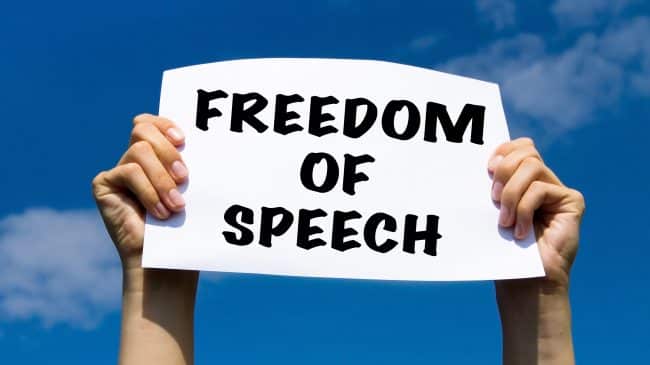In the United States District Court for the District of Arizona
United States of America, Plaintiff,
v.
Michael Lacey, Et Al., Defendants.
No. Cr-18-422-phx-srb
Brief of Amici Curiae the Dkt Liberty Project, Cato Institute, and Reason Foundation in support of motion to dismiss the indictment
This case presents questions of critical importance under the First Amendment that are of great concern to Amici. The Supreme Court has held that the Constitution presumptively protects all speech from government infringement. The burden for rebutting that presumptive protection rests with the government. It is a heavy burden, as it must be to safeguard the protections of the First Amendment. As a consequence, the government may not prosecute a speaker for his or her speech unless and until the government establishes that the speech is not protected. To ensure a robust, thriving marketplace of ideas, this presumption must reach even unpopular speech, such as the sexually oriented speech featured in advertisements on Backpage.com. The indictment, however, turns this basic presumption on its head by simply assuming the illegality of the speech on Backpage.com solely because it looks like speech that might concern illegal conduct.
Amici write to amplify the danger that the government’s inversion of the constitutional presumption protecting speech poses to free expression. The government has indicted Defendants, exposing them to costly prosecution and potential prison sentences and fines, on nothing more than the government’s spurious assumption that third-party speech on Backpage.com that resembled unlawful speech was unlawful speech. The government, moreover, has charged Defendants with criminal liability for speech engaged in by third-party advertisers on Backpage.com without alleging that Defendants had anything more than general knowledge of the alleged unlawfulness of such speech. Absent a meaningful judicial check on the government here, nothing can stop it from prosecuting other speakers by shifting its burden to rebut the First Amendment’s presumptive protection of speech to the speakers themselves, or from prosecuting publishers for their generic knowledge of third-party misconduct. Though the government will certainly argue that it has met its minimal standards for pleading an indictment, judicial vigilance should be at its height when the First Amendment is at stake. Perhaps no act of government is more inimical to free and open expression than prosecution—and thus the possible loss of liberty and property—for simply offering a forum for speech.
Unfortunately, the government’s conduct here is not new. The history of government efforts to suppress and censor disfavored speakers, particularly speakers who offer sexually oriented expressive materials, is long. Along with overseeing censorship boards and organizing adult bookstore raids, the government has previously mounted a multistate prosecutorial campaign designed to intimidate the adult entertainment industry—including the founder of one of the Amici—into silence. See United States v. PHE, Inc., 965 F.2d 848 (10th Cir. 1992). Throughout this history, however, the government’s efforts to silence these speakers largely have been thwarted by the Supreme Court’s clear instruction on the breadth of the First Amendment and the limits of government censorship over protected speech. This Court should follow the Supreme Court’s instruction and dismiss the indictment as an unconstitutional intrusion on Defendants’ First Amendment rights.
Amicus Brief: Motion to Dismiss the Indictment in United States v. Lacey
